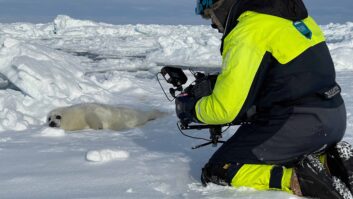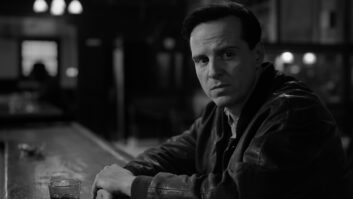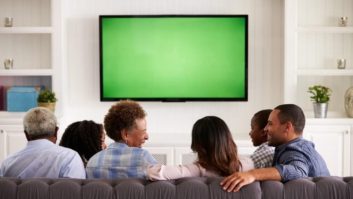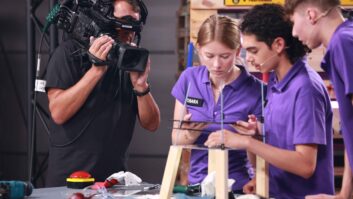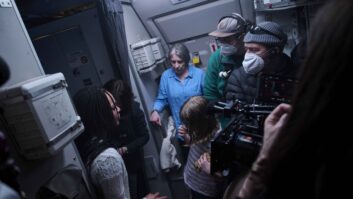“This election is like none of recent times.” “The December election is a frantic bid to break parliamentary deadlock.” “A once in a generation chance.” “This election was inevitable.”
Just a flavour of some of the comments made about the 12th December general election in the UK. And with such an important event taking place, both domestic and international broadcasters have been making comprehensive plans to bring the best coverage of this election – the first winter poll for nearly a century.
“I am always making plans, because it is good to continually tinker with the spreadsheet so you always have something in the back pocket for a last-minute call for an election,” Tim Burke, the BBC’s editor, election OBs, tells TVBEurope. “But I started planning specifically for this election during the summer parliamentary recess in August when it became obvious that there was such a fragile state of affairs in parliament.”
He says that what makes this election different is the volatility of the voter. “They are becoming more clever informing themselves from all sorts of different sources and, they might be more tactical about the way they vote. The whole dynamic has changed and we want to reflect that in the coverage we will provide.”
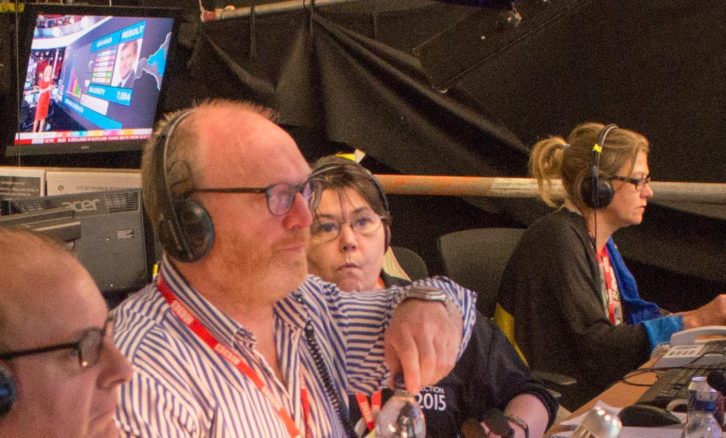
The coverage will include a presence at around 100 seats in England, a selection in Wales and every constituency in Scotland and Northern Ireland.
Most of these OBs will be covered by single camera operations, although the ‘big’ seats involving the political leaders and those vying to be first to declare will involve multicamera set-ups.
“In some of these seats we are pooling with ITN and Sky for the declarations. But we will each have own presenters to provide the ‘personal’ touch.”
The studio operation, which will be hosted by Huw Edwards, will be centred on Studio A at New Broadcasting House (NBH) in central London. This will combine with the virtual reality studio to enable Jeremy Vine to use his usual analysis of how the night is unfolding as the results come in.
Editorial centre
“Our editorial hub will be at Elstree studios,” explains Burke. “We have the encoders there that will enable us to use WMT (Wireless Multiplex Technology) for downloading from sources such as LiveU units. From Elstree we have 5G connections to NBH.”
Burke says that using WMT requires good discipline in its use. “It takes a little time to set up and get running. And with battery time limited, you need to plan in advance when and how it is to be used. And that is especially important in a landscape that is changing all the time. Producers on the ground have to be sure they know what is going on all the time.”
Burke emphasises the production teams are making the best use of technology wherever it is available. “For example, when we did a recce at Carlisle we thought it would be difficult to cable to a truck which would be parked in a position that provided line-of-sight with the satellite. But we discovered the facility had an ethernet connection that would go straight into the back of the camera and then directly to the internet.”
Burke will be stationed at Elstree on election night receiving intelligence from the floor of the counts to a set of sub hubs also based at Elstree. Those sub hubs feed into hub control and from there he will decide which feeds will be sent to NBH for inclusion into the main programme which will be directed by Chris Cook.
“One of the keys to success for an operation like this is clear communication. With so much voice traffic, it is vital that only essential talk back is used.”
The BBC will make use of social media both for BBC Online and for inclusion in the main television broadcast. “It is a useful tool in getting an early indication from the political parties as to how well they think they are doing.”
He adds: “This is a really difficult election to predict, so we are planning many different political scenarios. This is more than just a two-party race and our editorial and production planning is geared up to react to whatever happens.”
Order! Order!
Never short of a word of an appropriate moment, former House of Commons Speaker, John Bercow, will be adding his voice to the coverage offered by Sky News.
“We’re delighted to be welcoming John Bercow to our General Election coverage,” says John Ryley, head of Sky News. “John will bring his own authority, and no little wit to a night of high drama. Contentious and controversial, the former Speaker will doubtless have his own colourful views on events.”
Ryley adds: “With the political landscape in more turmoil and more uncertain than ever The Brexit Election on Sky News will bring our viewers all the drama of an election night like no other.”
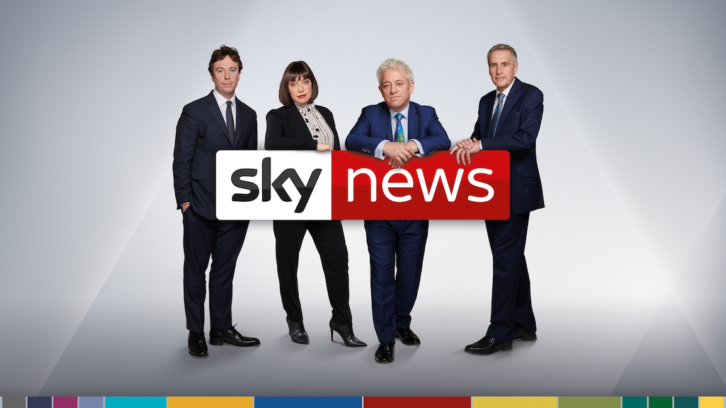
Dermot Murnaghan will be the presenter in the purpose-built studios at the centre of Sky’s Osterley headquarters. He will be joined by Sky News political editor Beth Rigby and deputy political editor Sam Coates. Ed Conway will use high-tech graphics to show viewers the unfolding events in a concise presentation.
“We will use augmented reality graphics, wire cams and a state-of-the-art videowall will help tell the story of the night in a fresh engaging way,” explains Ryley.
He continues: “In an election that is increasingly being fought out on social and digital media battlegrounds, Sky News will have in-depth coverage across its digital platforms. On election night this will include a partnership with BuzzFeed UK to deliver a live programme aimed at a younger, more diverse audience.”
Streamed live across Sky News’ digital platforms, including Facebook, Twitter, Twitch and YouTube, the show’s mission, says Ryley, is to both explain what is happening and to engage the audience. This output will be presented by political correspondent Lewis Goodall, with technology correspondent Rowland Manthorpe.
Outside of the studio, Sky will, for the first time ever, have a journalist at every count.
“I’m confident this will be Sky News’ biggest, boldest election night programme, covering every twist and turn of the night, with explanation and analysis for all audiences. We will have all the bases covered to analyse the results as they start to be reported, with the exit poll released at 10pm giving the first indication towards the possible outcome. It promises to be a night of political frenzy with the very future of the United Kingdom at stake,” states Ryley.
Going live
Providing kit for the broadcasters is, of course, a major undertaking. LiveU, for example, will see the full range of its units being used across its main broadcast customers. “Sky News will have LU600s, LU300s as well as LU500s and LU200s,” details Malcolm Harland, managing director, Garland Partners, LiveU’s UK partner. “In Northern Ireland another broadcaster is using mainly LU600s. We’ll also see VSAT vehicles using the LU610 – LiveU’s professional 1U HEVC rackmount encoder for vehicles and fixed locations.”
Based on LiveU’s LU600 4K HEVC technology, the LU610 offers hybrid cellular/satellite solution for SNG trucks, point-to-point and point-to-multipoint distribution. There will also be considerable direct-to-online/social media use with LiveU Solo.
“We also have a mix of units and Xtenders going out to a major broadcaster in Scotland.”
Harland continues: “Of course, the busiest usage period will be the day before the vote, the day of the election and the day after. Usage also includes the LU-Smart smartphone app with UK national newspapers, in particular, taking advantage of this.”
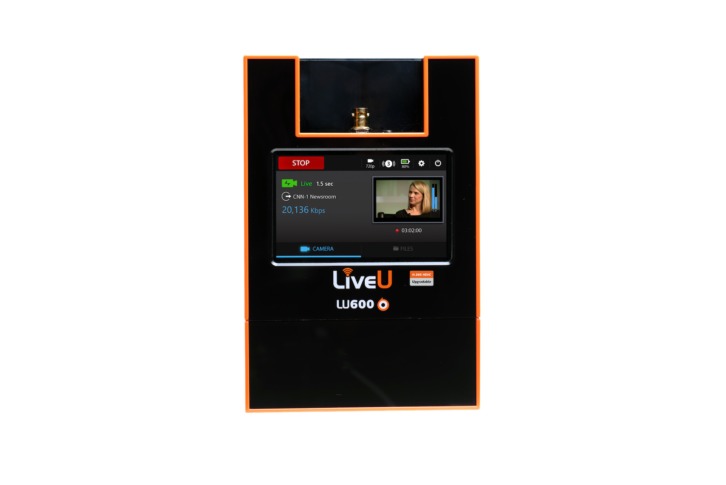
Around elections, typical use tends to be single camera/single LiveU unit. It’s possible some of the news agencies may take multiple units to party headquarters, but this tends to be based on what’s happening that day.
“With this election, more than any other, the air of unpredictability hangs over us. But that’s where LiveU comes into its own – the inherent mobility, speed of deployment and flexibility are essential to capture the excitement – chaos, perhaps – in the run-up and the event itself.”
Given previous election experience, LiveU is frequently used for Vox-pop out-on-the-street use, walking round with a reporter interviewing people. There will also be stand-up positions with reporters at a specific location for live news reports. The third use is outside polling stations covering exit polls and declaration centres when the results are announced.
“This is something that Sky News has done with LiveU very successfully for previous UK general elections,” says Harland. “We are also likely to see LiveU with reporters following the various party leaders on their ‘battle buses’ as they move around the country, again this is where the inherent mobility of the technology comes in.”
Harland says that LiveU kit has been supplied to many freelancers over the years. “Broadcasters turn to our LiveU-equipped freelancers, especially for events like this, because they want a turnkey solution and want to use those who are already familiar with LiveU and have the technology ready to go. It’s not only a case of being easily able to follow the key players around, but also of being able to be on-the-air quickly and reliably to capture the moment. And then pack up quickly and on to the next situation.”
LiveU also has a strong installed base of units with international broadcasters who have operations in the UK from all over the world. Harland reports that there are also certain freelancers who specialise in providing services to international broadcasters.
View from abroad
“We are planning rolling coverage of this momentous event!” emphasises Gallagher Fenwick, head of France 24 English. “We are sending a large crew to London in order to have the necessary manpower to go live on all four of our channels – French, English, Arabic and Spanish. We will broadcast from London at any time we decide starting on the morning of 12th December. We will have various special editions at key times during both the 12th and 13th December.”
Several of those special programmes will be anchored from College Green in front of Parliament. For example, France 24 English presenter François Picard will travel to London to present the channel’s flagship show The Debate from that location. “We will also have special editions originating from our headquarters in France during which we will go live to London, Edinburgh and Belfast. We will have in-house commentators on set helping our viewers get a better understanding of what the results mean for the UK and Europe.”
France 24 will also have its business editor on hand to take a look at market reactions. In addition, one of its journalists will be reviewing the international press for reactions and analysis coming in from around the world. The social media editor will also be scouring the web for quotes and significant stories that are being picked up by users of different platforms.
Fenwick reports that in London the channel will have up to four different feed points for all four channels. “We will have people coming from Paris who will collaborating with local technical and editorial colleagues in the UK.”
Presenting team
For the English programmes, France 24 will have two main presenters in London – François Picard and Catherine Norris Trent. Picard has anchored many editions of the flagship show The Debate centred around Brexit and UK politics and will be introducing three of the special editions over 24 hours.
Catherine Norris Trent, one of France 24 English’s most seasoned reporters and a UK native, will be anchoring half-hour special editions at the top of every hour starting at 7am until 10am Paris Time on 13th December.
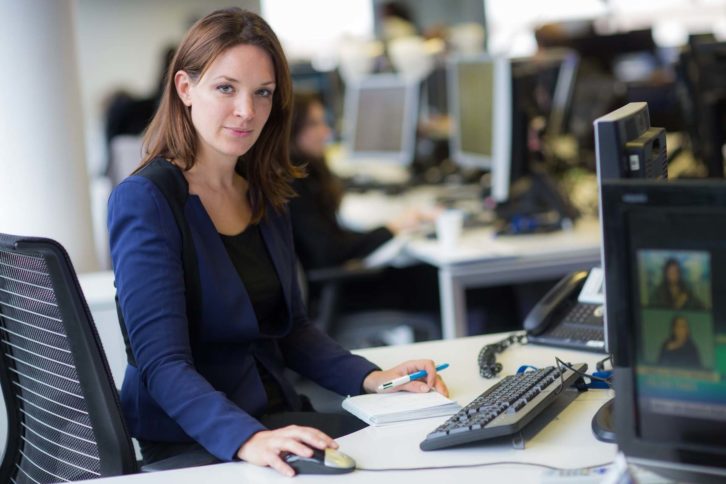
“Stories which we will be airing on the 12th and 13th December will be a mix between content edited in the UK and material put together at France 24’s headquarters. All of our live shows are edited from our galleries back in France. All graphics are added at the home studio.”
Fenwick adds: “Social media will be prominently featured in our TV coverage, but it will also be a key aspect of how we cover these elections. Facebook Lives, Instagram stories, Twitter threads curated by our social media editors will all be central to these efforts.”
More from Europe
Over in Germany, DW reports that while the UK is not a focus country for the broadcaster as such, Brexit is, of course, of interest to its viewers worldwide.
“We have several pre-election reports planned for our linear English TV channel in the run-up,” says Christoph Jumpelt, head of corporate communications and spokesperson. “The first one aired recently and featured some young ‘Brexiteers’ on the campaign trail. We’ll also be getting reports from Northern Ireland and Scotland ahead of the day itself.”
He states that other key campaign events – such as TV debates etc – will be handled via reports originating in the Berlin newsroom with two-ways to DW correspondents in the UK, using mostly footage from international agency feeds.
“On election night we will be doing live updates as part of every news hour, though exact plans are still in the making and will also factor in the day’s unfolding news. Our other linear TV channels – German, Arabic, Spanish – will offer coverage in their newscasts. We shall also be covering election campaign and voting online and provide highlights via social media in our 30 broadcast languages.”
Croatian coverage
Croatia’s public broadcaster, Croatian Radiotelevision (HRT), is planning extensive coverage for the upcoming parliamentary elections in the UK. “We are already broadcasting news reports regarding the election campaign,” says Igor Medic from HRT’s public relations department. “We are planning live reports from London on 12th and 13th December, and our special correspondent Dragan Nikolić will be in charge, reporting from the spot, with the parliament building in the background. He will report for our main news programmes with the help of the European Broadcasting Union (EBU) infrastructure.”
Besides its own correspondent, there will also be Associated Press crew to help HRT with the technical details. “Editing will be done at home, as well as the graphics,” states Medic. “HRT will also have statements by Boris Johnson, Jeremy Corbyn, Nicola Sturgeon, Jo Swinson and Nigel Farage. Also, reactions from Washington and Brussels are planned. The entire coverage will also be available on our website www.hrt.hr and on social media.”

